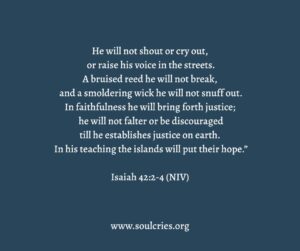Anxiety and depression often lock arms, and demand to be noticed; but I’ve discovered tools to help silence their intimidations. Among many other tools, learning to see the world from the vantage point of gratitude has been critical to my victories over these two bullies.
My story includes depression
After Gary and I married in 2012, he and his boys moved into my home as we began life together. As I mentioned in the last post, all four of us had been traumatized by the process of illnesses and deaths of our previous spouses, and so his boys were less than thrilled to be facing a new life with a new “mom” figure. Blending a new family takes time. It has been wisely stated that the process of blending families is more like a crock pot than a microwave. It’s true.
My now youngest son expressed his daily frustrations openly and the oldest was more inclined to passive aggression. Either way, I understood their frustration. Gary’s and my courtship had been long-distance, so I had only a handful of opportunities to get to know Gary’s boys before the wedding. I intellectually understood their pain, but my heart wept that wanting them in my life didn’t currently mean they wanted me in theirs.
Gary too was adjusting to our new family as he navigated the employment market in a new state at fifty-seven years of age. He had previously experienced decades of working in his father’s very successful and well-known electrical business with Kroger stores in four states. But his dad had died several years before leaving the business in decline, and now he tried to find work in a part of the country where his father’s business success meant nothing. He was starting over, and although he told me he would deal with the boys until our relationship had a chance to grow (a good idea in theory) his new job was way below his previous pay-grade and experience level which added tremendous stress to his life. I became the adult who most often interacted with the boys.
Tempers often flew and my formerly peaceful home of just me and the dog was no more. I expected Gary to step in, but his own grief and all they had been through together still overwhelmed them all. I felt very alone and invaded as depression began to set in. I daily struggled with my own trauma, compounded by anger and growing bitterness.
As our second Christmas rolled around, I wasn’t doing well internally. While looking through a book catalog one afternoon, a title caught my eye, and I knew the Lord was encouraging me to get the book. I ordered, “1000 Gifts” by Ann Voscamp, and soon after Christmas began reading it. I related with Anne’s journey with depression, and so her words soothed my aching soul.

God knew I needed this! Photos in this post are gratitude photos from that time period.
My education into defeating depression
What I learned from Anne, I now share with you. Her years of depression slowly lifted as she learned to practice gratitude. It sounds too simple, but as I also took up the practice, I too began to notice depression lose it’s hold. There were other measures I later took to keep depression at bay, but for now I’ll share how both Anne and I began this simple practice, and in the following posts I’ll speak to the other things I had to add. This practice is an amazingly simple tool that is critical to mental health.
Anne’s sister gave her a journal as a gift, and suggested she daily write down everything that brought her the smallest bit of pleasure and happiness. It became a game to see if she could discover 1,000 gifts to enter into the journal she now left open on her kitchen counter. She prayed that God would show her even the smallest pleasures so she could write them down.
For the first time, her eyes were opened to the beauty within the iridescent bubbles in her soapy dish water. She began to notice the pleasure she found in hearing the birds singing outside her kitchen window. She suddenly noticed the artistic way the shadows danced on the walls as the sun came through the open door. Her children’s laughter and childish conversations began to bring her pleasure rather than irritation. As her soul became alive to the simple beauties, depression slowly began to lift. Gratitude was displacing depression as God moved to heal her heart. She found such pleasure and joy she had never experienced, and soon began taking pictures of her discoveries. Her blog now contains her photos, and continues the dialog of her journey.
I’d never thought of looking for God’s gifts in such simple, daily pleasures. Until reading Anne’s book, if I noticed the bird songs at all, I didn’t think of being grateful. Being thankful for simple things like soap suds? But Ann’s transformation gave me hope. It wasn’t long that hope drew me to place my own open journal and pen on the kitchen island to await my own record of gratitude discoveries. I too soon added a growing number of photos to remind me over and over of new found simple pleasures. And as my list grew, I too felt depression’s fangs withdraw from my being.

Grateful for an evening walk holding hands with Gary
‘Often people ask how I manage to be happy despite having no arms and no legs. The quick answer is that I have a choice. I can be angry about not having limbs, or I can be thankful that I have a purpose. I chose gratitude.’ – Nick Vujicic
Depression, gratitude, and science
Neuroscience of gratitude article
Neuroscience has discovered that there are several long-term benefits of practicing gratitude through giving simple thank-you notes and keeping a gratitude journal. An article in PositivePsychology.com entitled, “The Neuroscience of Gratitude and the Effects on the Brain” states that the effects of regularly expressing gratitude:
- Activates the reward centers of the brain enhancing feelings of well-being and contentment while also encouraging cognitive restructuring making it easier to think positively
- Rewires the brain to fire new connections to the bliss center (see also information from the previous post by Dr. Caroline Leaf regarding rewiring the brain)
- Reduces fear, depression and anxiety through regulating the stress hormones while enhancing dopamine and serotonin transmitters responsible for happiness
There are also beneficial effects on the body, including:
- Activation of the portions of the brain that regulate emotions, body functions, and memory allowing those who regularly practice gratitude to heal faster and feel better sooner compared to those who strictly focus on their negative experiences
- Increased vitality and thereby decreased symptoms of pain
- Improved deep and healthy sleep, with increased opportunities to feel refreshed upon waking
Making a habit out of expressing gratitude also improves social bonds and increases the possibilities for positive social outcomes in the future.

Grateful for clean dishes and a dishwasher to clean them
National Library of Medicine article
An article in the NIH National Library of Medicine defines gratitude as:
…. a light expression not necessarily conditioned to good times, making it possible to maintain the feeling and feel good, even during negative experiences or most difficult moments.
The studies referred to in the NIH article included gratitude interventions such as:
- Gratitude diaries
- Conversation programs
- Training and visits
- Expression of gratitude to others (verbally or in writing)
- Publishing pictures with captions of gratitude
- Thinking of things that makes one feel grateful
The studies this article focused on showed that a habit of expressing gratitude positively improved:
- Satisfaction with life
- Mental health by decreasing the symptoms of anxiety, depression, and Generalized Anxiety Disorder (see also my last article on anxiety regarding how Dr. Caroline Leaf has discovered that changing the way you think changes the “root” structure of the brain)
- Feelings of optimism and positivity
- Prosocial behaviors
- Sleep patterns (in one study significantly, and in another study no measurable improvement) There are other factors that affect this, which I will write about in a future article
This practice isn’t one and done. It has to be regularly maintained. I have found that since making the practice of gratitude a priority, I notice God’s daily gifts more readily. I have also discovered that when I’m focusing on a current problem my ability to notice his gifts diminish.
The reason I attribute simple daily pleasures to God is because I have experienced his goodness and know that he is the author and giver of all such gifts. I thank him, because my heart longs for him to experience the pleasure of having truly blessed me.
Every good and perfect gift is from above, coming down from the Father of the heavenly lights, who does not change like shifting shadows.
James 1:17

Surprise gift of steamed Blue Crabs from a friend!
Bible bites regarding depression and gratitude
“The Spirit of the Lord is upon me,
for he has anointed me to bring Good News to the poor.
He has sent me to proclaim that captives will be released,
that the blind will see,
that the oppressed will be set free,
and that the time of the Lord’s favor has come.” Luke 4:18-19 (NLT)
Let me pray for you
Lord, this one reading this post needs your touch. You promise that all who come to you will never be turned away. You promise never to batter them as they have experienced in the world. You promise not to extinguish what light that remains, but desire to give them life like they can’t even imagine. Peace like they only dream of, and hope they have come to think doesn’t exist. Holy Spirit do what only you can do. Surprise them by your power and love toward them. In Jesus’ name, amen.
One man’s testimony of the power of gratitude to pull down depression
Most relevant posts:
Does Anxiety Need to Batter My Life Forever? (first post in this series)
Am I Listening to the Right Voices


0 Comments